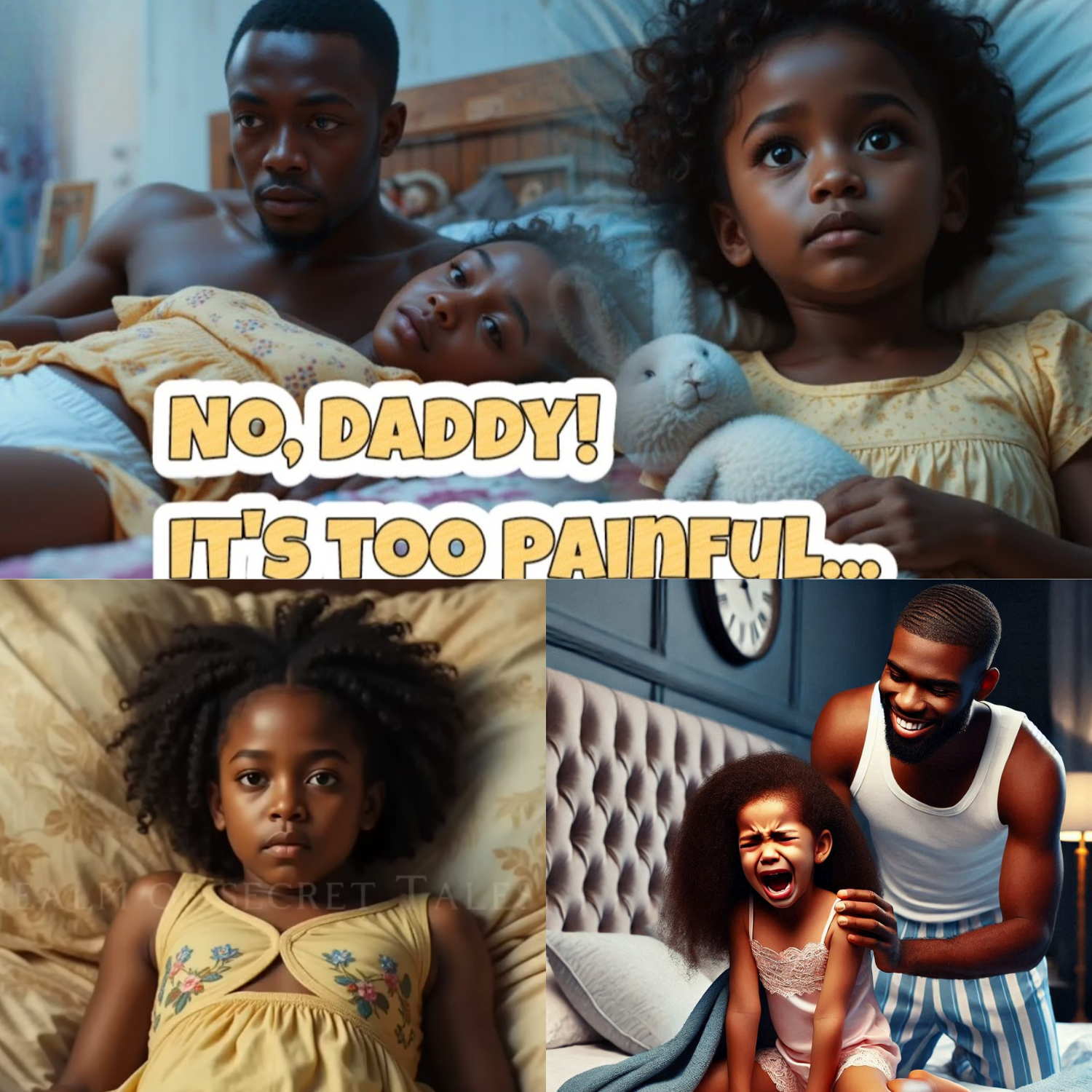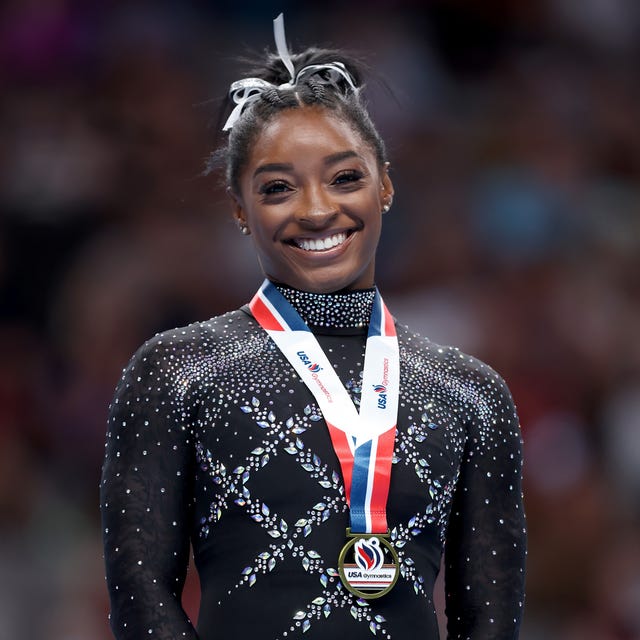WARNING: ALL PARENTS MUST SEE THIS BEFORE IT’S TOO LATE
To the outside world, Mr. Taio was the kind of man everyone admired — a devoted father, a man whose laughter could light up a room, the neighbor who built birdhouses in his backyard with his little girl. His colleagues respected him, his friends trusted him, and his family seemed complete.
But behind that carefully practiced smile lived a shadow no one could see. And the only person who truly knew the difference was his daughter, Alina.
A Childhood Built on Sunshine

At nine years old, Alina’s world was filled with wonder. She loved to draw, to twirl in the rain, to climb onto her bed and pretend it was a castle where she ruled as a princess. And at the center of her world was her father — her hero.
She would watch him work at his computer, entranced by the colorful patterns on his screen. To her, it looked like magic. “One day I’ll make something just like you, Daddy,” she’d say, her eyes sparkling with pride.
There were afternoons when they painted together in the yard. Once, she accidentally brushed yellow paint across his shirt. Her small hands froze in fear, but he had only laughed. “Mistakes are part of making something beautiful,” he said, ruffling her hair. In that moment, Alina believed she was the luckiest girl alive.
But sometimes heroes wear masks. And sometimes the person you trust most is the one who causes the deepest wounds.
The Secret That Stole Her Smile
One quiet evening, Alina was sketching on her bed when her father entered. He smiled the same gentle smile she had always trusted. Kneeling beside her, he whispered words that sounded like a gift:
Her nine-year-old heart swelled at the thought of something magical and private. She nodded eagerly. But what followed was not a gift. It was the beginning of a nightmare.
That night, Alina’s sense of safety crumbled. What she thought was love felt twisted and wrong. Her tiny hands gripped her bedsheet as she whispered through tears, “Daddy, please… I don’t like this.” But her pleas dissolved into silence.
When he finally left her room, she curled into a ball, clutching her stuffed rabbit to her chest. “Why does love hurt so much?” she whispered into its ears.
Silence in the Shadows
The next morning, Alina wanted to tell someone. She thought of running to her mother. But her father’s warning echoed in her mind: “If you tell, they’ll take you away. Do you want to lose your family?”
The thought of losing her home terrified her. So she stayed quiet.
Her mother was always busy, bent over stacks of papers and coins from the small shop she ran. One night, Alina stood at the doorway, clutching her stuffed rabbit. “Mama,” she whispered, her voice trembling, “can I talk to you?”
Not looking up, her mother sighed. “Not now, Alina. I’m busy.”
“But Mama, it’s really important.”
Her mother set down her pen with irritation. “Go do your homework. I work so hard for you — don’t bother me with little problems.”
Alina’s throat tightened. She wanted to scream, to force her mother to listen. Instead, she nodded. “Okay, Mama.” Then she walked away, tears streaming down her face.
That night, the footsteps came again. The door creaked open. Her heart pounded. And once more, the cycle repeated.
A Child Invisible
The days turned into weeks. Alina drifted like a ghost in her own house.
At school, teachers praised her for being quiet, obedient, and well-mannered. “Such a good girl,” they said, unaware of the trembling hands hidden beneath her desk. She envied her classmates, their carefree laughter, their freedom.
She tried again to speak. One afternoon she whispered, “Mama, Daddy does things… when you’re not here.”
Her mother froze, then sighed with frustration. “Don’t start with your stories again. Your father works so hard for this family. Stop making trouble.”
“But Mama, it hurts!” Alina cried.
“Enough!” her mother snapped, slamming her hand on the table. “Go to your room.”
The sound made Alina flinch. She stared at her mother, waiting, hoping for one last chance to be believed. But her mother had already turned back to her papers.
That was the moment Alina gave up hope.
The Night Everything Changed
One evening, her mother came home earlier than usual. The shop had been slow, and she wanted to rest.
Upstairs, Alina lay curled on her bed, numb. She heard her father’s voice downstairs, casual and warm as ever: “You’re home early.”
“Yes,” her mother replied.
For a moment, Alina thought maybe, just maybe, tonight would be different. But then she heard it — the dreaded footsteps on the stairs. Her chest tightened. Not again.
He entered her room, his face dark and commanding. “You know the rule,” he said, shutting the door.
Alina backed into the corner, shaking. “Please,” she begged, tears streaming.
And then the door burst open.
“Aris!” her mother’s voice thundered, louder than Alina had ever heard.
Her mother stood in the doorway, her eyes darting between Alina’s terrified face and his guilty expression. The truth unfolded in an instant.
“What are you doing?” she screamed, her voice shaking.
He stumbled, fumbling for excuses. But instead of remorse, he turned his fury on her. “You don’t understand! You’re never here. You care more about your shop than your family. What else was I supposed to do?”
His words were venom. Her mother’s face crumpled in horror and guilt. For a moment, Alina thought she might believe him. But then her mother’s eyes fell on her — her broken, trembling child.
And something inside her mother snapped.
With a scream, she lunged at him. They struggled, shouting, crashing against the walls. Finally, with every ounce of strength, she shoved him out of the room and slammed the door, locking it.
She collapsed to the floor, pulling Alina into her arms. For the first time, she saw her daughter clearly — not as the quiet child she assumed was fine, but as the fragile, hurting soul she had failed to protect.
“Why didn’t you tell me?” she sobbed.
“I did,” Alina whispered, her voice shaking. “You didn’t listen.”
Her mother’s tears fell into her hair. “I’m so sorry, Alina. I’m so sorry.”
A Mother’s Awakening
That night, her mother called for help. But when officers arrived, he was gone. He had vanished, leaving only fear and wreckage behind.
For weeks, Alina and her mother lived in dread, listening for footsteps that never came. Her mother closed her shop, determined to stay home, desperate to rebuild the trust she had broken. She hovered near Alina, vowing never to ignore her again.
But guilt lingered like a shadow. No matter how many times she apologized, she couldn’t erase the memory of the moments she dismissed her daughter’s cries.
Alina, too, carried scars invisible to the eye. She no longer trusted easily. Laughter felt like a language she had forgotten. She often stared into the mirror and wondered if she would ever feel whole again.
The Hidden Lesson
Alina’s story is not just hers. It is a warning.
It reminds us that monsters do not always look like monsters. Sometimes they smile, sometimes they laugh, sometimes they sit at the dinner table and say grace.
It reminds us that children often speak in whispers, and that those whispers matter more than we think.
It reminds us that silence can destroy lives just as surely as cruelty.
And it reminds us that love — real love — is not found in secrets, threats, or fear. Real love listens. Real love protects. Real love heals.
Epilogue
Years later, Alina still remembers the night her mother burst through that door. It was the night everything broke — but it was also the night something began.
It was the night her mother finally saw her.
The scars remain, but so does the bond they rebuilt in the ashes of betrayal. And though the road to healing is long, Alina holds one truth close to her heart:
The darkness may steal your childhood, but it cannot steal your voice forever — if someone is willing to listen.
Simone Biles Breaks Her Silence — And the World Is Stunned by What She Revealed About Charlie Kirk

Simone Biles Breaks Her Silence: Turning Public Criticism into a Lesson in Courage
Few moments in sports history captured the nation’s attention like Simone Biles’ decision to step away from competition during the Tokyo Olympics in 2021. The gymnast, widely regarded as the greatest in her sport, stunned the world not with another gravity-defying routine, but with an act of vulnerability that millions had never expected. Biles explained that she was not in the right mental state to compete safely, prioritizing her health over medals and record-breaking performances. For fans, it was a rare glimpse behind the curtain of an athlete who often seemed invincible.

Yet while many offered support, some criticism was harsh and personal. Among the loudest voices was conservative commentator Charlie Kirk, who branded Biles a “national shame.” The words cut deeply, compounding the invisible yet overwhelming burden of Biles’ mental health struggles. In an era where social media amplifies every opinion, these remarks landed like daggers, overshadowing the athlete’s courage and raising questions about society’s treatment of vulnerable public figures.
For weeks, Biles remained largely silent, processing both the loss of Olympic opportunity and the sting of public humiliation. The intensity of the backlash, she later admitted, made her feel as though she were being judged for something beyond her control. “I carried not only the weight of my struggles but also the sting of public humiliation,” she said. The criticism intensified the isolation she felt, even as millions of fans rallied to defend her. While the public discourse raged, Biles’ focus remained inward, navigating the complexities of her mental health and her responsibilities as a high-profile athlete.
Years later, following Charlie Kirk’s unexpected death, Biles finally broke her silence, offering a statement that resonated far beyond gymnastics. In a recent interview, she spoke with a mixture of honesty, poise, and hard-won resilience. “I kept quiet because I didn’t want to add more fuel to the fire,” she said softly. “But the truth is, I was broken. When I heard those words—‘national shame’—I believed them. I thought maybe I really was everything they said I was. I wanted to disappear.”
Her voice quavered as she paused, holding back tears before continuing. “But with time, I realized something important: my worth is not defined by medals, by routines, or by critics who don’t understand what it’s like to carry the weight I carried. My worth is in being human. And if speaking out about my struggles helped even one young person feel less alone, then it was worth it.”

The impact of Biles’ words has been profound. Social media erupted with support, and hashtags like #WeStandWithSimone and #CourageNotShame trended globally. Athletes across disciplines echoed her message, praising her for the bravery to speak openly about struggles that so many experience privately. Parents sent messages of gratitude, recounting how Biles’ honesty empowered their children to seek help when they needed it most.
For many, the highlight of Biles’ statement was her ability to transform personal pain into a broader message of resilience and humanity. She framed her experience not as a tale of weakness, but as an example of strength: the courage to acknowledge vulnerability, to seek help, and to reclaim one’s voice in the face of public scrutiny. In doing so, she challenged the narrative that icons must be impervious, showing that even champions can experience profound personal struggles.
The timing of her statement, following Kirk’s death, lent it additional gravity. Biles did not speak out of malice or anger; her words were measured, carrying quiet power. She reminded the public that words have consequences—they can wound, but they can also heal. Her willingness to reflect on her past experience and articulate lessons learned provided a model for emotional resilience and accountability, particularly in a society that often prioritizes spectacle over substance.
Biles’ reflection has sparked conversation far beyond the world of gymnastics. Fans, journalists, and cultural commentators have praised her for demonstrating that vulnerability can coexist with strength, and that acknowledging mental health struggles is a form of courage, not weakness. Her story has resonated with millions, particularly young women, who see in Biles’ experience a validation of their own struggles and an example of how to navigate public criticism while preserving self-worth.

What makes Biles’ words especially impactful is their universality. While the comments from Kirk and other critics were specifically targeted, the lesson transcends her personal experience. It speaks to anyone who has been shamed, judged, or dismissed in a public forum. By framing her vulnerability as a source of strength, Biles has provided a roadmap for resilience in the face of public scrutiny, demonstrating that healing and growth are possible even under immense pressure.
Her legacy now encompasses more than athletic achievement. Yes, Biles will forever be remembered for her gravity-defying routines, unparalleled medals, and contributions to the sport of gymnastics. But equally enduring is her willingness to speak openly about mental health, to confront criticism with honesty, and to reclaim her narrative on her own terms. She has shown that true strength lies not just in physical prowess but in the courage to confront and articulate one’s humanity.
Closing her recent interview, Biles reflected on the journey from shame to empowerment. “Today, I don’t carry those words with me anymore. I carry my truth. And my truth is that I survived. I got help. And I’m still here.” The resonance of her statement has been immediate. Fans, athletes, and advocates alike have cited it as a turning point in discussions about mental health, accountability, and the pressures faced by high-profile figures.
In the end, Simone Biles has proven that resilience is about more than enduring—it’s about transforming adversity into a lesson for others. By speaking out, she has turned a moment of public humiliation into a beacon of hope, reminding the world that courage is measured not only by medals won, but by the vulnerability embraced and the truths shared. Millions who once admired her athletic brilliance now admire her even more—for her honesty, her courage, and her humanity.
Simone Biles’ story, once dominated by controversy and criticism, has evolved into a testament of empowerment. In confronting public judgment, acknowledging personal struggle, and reclaiming her narrative, she has illuminated a path for countless others. Even the deepest wounds, she has shown, can become a source of light—and that light can inspire a nation.





